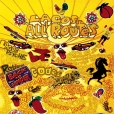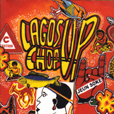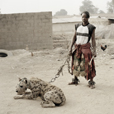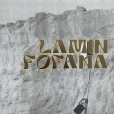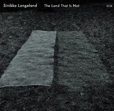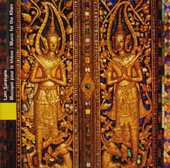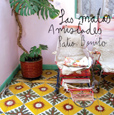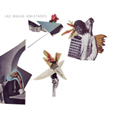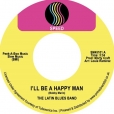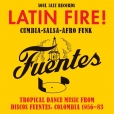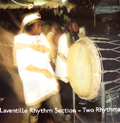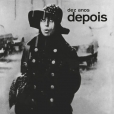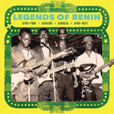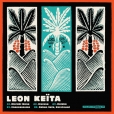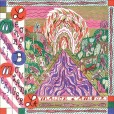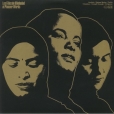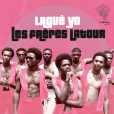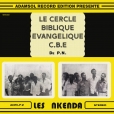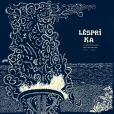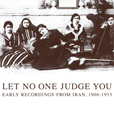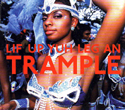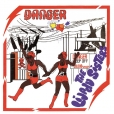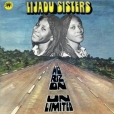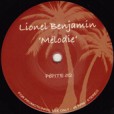Your basket is empty

‘*****’, The Independent; ‘captivating… Q Recommends’; ‘there is no end of exhilarating music on this beguiling album’, The Sunday Times; ‘full of heartstopping musical twists and turns’, The Beat.
‘*****’, The Independent; ‘a vibrancy and energy that make it impossible to sit still’, Metro; ‘shines from Shina to Shina’, The Beat; ‘CD Of The Week… astonishing’, Daily Telegraph; ‘incendiary’, The Observer.
Epic, grooving, extravagantly creative, perfectly attuned blends of complex mbalax drumming, field recordings, thumping kick-drum, and cosmic, bubbling, jamming synths and electronics.
The opening is suitably liminal, haunted by a diachronic sense of times past, present, and to come: ancestral ghosts, scratched playback, scraps of old recordings, voices strangulated or just out of range; puttering drums; futuristic, kosmische keys. Part II picks up the pace; III gives the drummers some, and heightens the atmosphere of enchantment. Jon Hassell’s Fourth World music courses through a kind of Dream Theory In Dakar.
Toco SOS, the second side, is a thumping, throbbing, mesmeric future-classic; perfect for fahr’n fahr’n fahr’n on the Autobahn… in a spacecraft. Expert hand percussion, call-and-response singing, bin-trembling foot-drum, spaceways keys. Sleekly funky as prime Popol Vuh.
Both sides range expansively by way of Berlin, where Lamin resided for a few years: you can hear something of T++’s brilliant, landmark HJ record on the A, and elements of Mark Ernestus’ crucial Ndagga project, on the B.
Half an hour of stunning music; in a beautiful sleeve, with mirror lettering, and an intricate spot-gloss rendition of salt crystals, laid over a photograph of the salt mines at Lac Rose, outside Dakar.
A rare Saravane-style lam, beautifully sung by Nang Soubane Vongath, and with rocking, virtuoso mouth-organ, with sixteen or so reed pipes, a metre-or-more long.
‘one of the most charming idiosyncrasies I have heard all year… where truth is seized accidentally and musical shambles are sweet, virtuous and silly… like watching early Bunuel without subtitles’ (Plan B).
‘The bad influences’, from Bogota, with their third album for us: twenty-eight gorgeous variations of saudade, in a warmly acoustic, post-punk take on Tropicalismo — impromptu, snapshot and sublime.
Thirteen and twenty-two minute slices of carnival thunder and lightning from the hill above Port Of Spain in Trinidad. Lengths of steel, assorted bits of metal, African drums. An Honest Jon’s recording.
Balmily sublime bossa nova from 1971, when Nara was living in Paris.
The first LP is spare and intimate acoustic recordings, a bit like demos, but exquisitely poignant, with killing-it-softly singing over delicate guitar accompaniment (and occasional simple piano); the second gives vocals and guitar an orchestral setting, with spacious, sensitively variegated arrangements by Roberto Menescal, Luiz Eça, and Rogério Duprat.
Gorgeous, warmly enveloping music; good for the soul.
An unassuming classic.
Gorgeous, restorative duets by a French singer and Iranian singer/instrumentalist, taking a highly personal, affective approach to the traditional radif repertoire established by Ostad Abdollah Davami. Ecstatic, sensual ghazals from the thirteenth and fourteenth centuries: ‘You gave me away free,’ she chides. ‘I wouldn’t take the world for a single hair from your head.’
Two sides triumphantly add organ and harmonium, bendir and n’goni.
The performances are considered and expert enough, but with a have-a-go freshness and emotional truth, without snoot or prettification.
Wonderful artwork by Gwénola Carrère.
A magical record.
Heavy, meditative Tuareg rock.
‘If you listen long enough, and make yourself open enough, it is possible to reach a kind of holy place’ (The New Yorker).
Classic, jazzy, funky zouk, from Guadeloupe.
‘A deeply emotional, hypnotic fusion of gospel, psychedelic groove, folk, soulful funk, and
Afro-Latin rhythms. Recorded in Pointe-Noire, and originally released in the Republic of Congo in 1982, the album channels the raw spirit of 1980s Congo with vibrant multilingual vocals and rich, polyrhythmic textures.’
Fully remastered from the original tapes.
Ravishingly beautiful, achingly precious songs and instrumentals, sumptuously presented: the Royal Court Orchestra in 1906 through to a hauntingly soulful Hafez setting by Moluk Zarrabi of Kashan, from 1933.
‘a terrific soca compilation… a vital contemporary follow-up to London Is the Place for Me’, Village Voice; ‘*****, Compilation Of The Month’, Touch; ‘chaotic and compelling… an ace selection’, Time Out.
